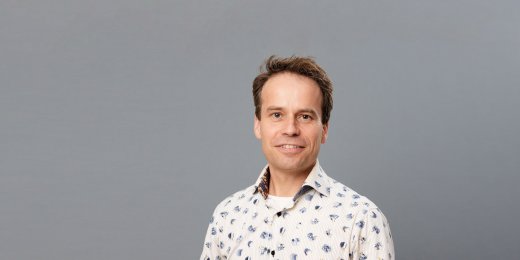13/12/2015
The man behind the mission
This interview marks the beginning of a series of interviews with people involved in SensUs. The founder of the first international student competition SensUs is Menno Prins, a professor at Eindhoven University of Technology, working in the field of Molecular Biosensing for Medical Diagnostics. To get an insight in the man behind the mission we interviewed professor Prins, revealing his history, his first thoughts about SensUs and his expectations.
Who are you and what are your daily activities on the TU/e?
"I am fascinated by new technologies for biochemical sensing and by applications in the fields of near-patient testing and patient monitoring. My mission is to train and inspire young scientists and engineers by involving them in top-level biosensing research, and to lay the foundations for sensing technologies that will in the future improve the quality of life of patients."
What is your history with biosensors?
"I have been working in the field of biosensing for 15 years now. While working at Philips Research, I initiated and then developed with a team a point-of-care biosensing platform based on magnetic nanoparticles. I became a fulltime professor at Eindhoven University of Technology in 2014, and my aim is again to develop innovative biosensing technologies, starting from novel basic concepts, and then translate the results to society."
How did you come up with the idea of SensUs?
"I was thinking about a novel way to stimulate the development of technologies and applications in the field of molecular biosensing. A way that should bring together talented young people from different scientific disciplines and from different countries, and that should nurture collaborations between universities, companies, patient organizations, and other stakeholders. A way that would be fun to watch for a very broad audience. That's how the idea to start an international student competition was born, which we named SensUs."
Why do you think that those five universities are promising participants?
"The five universities that participate in SensUs 2016 do research at high level across a broad range of scientific disciplines. Students should have access to these resources for the development of new biosensing systems, in particular biochemistry, chemistry, physics, electrical and mechanical engineering, and software science. I think that the student teams will generate highly creative ideas and will build systems that work. They are going to surprise themselves and the world. SensUs 2016 is a pilot year; next year more universities are welcome to join the SensUs competition."
In what way do you think that SensUs can be relevant for the society?
"SensUs has a roadmap philosophy. With the stakeholders we will plan a series of challenges in the coming years. Every year, a meaningful challenge will be addressed by the teams, insights will be gained, and solutions will be generated. The involvement of stakeholders such as patient organizations and companies will enhance the chance that promising solutions will be carried to next levels, with translation to society as the end goal."


Facebook
YouTube
LinkedIn
Instagram